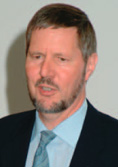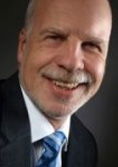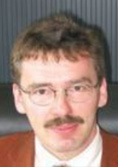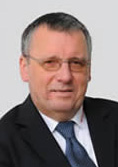Research Groups
 This field’s central research concentration lies in the production, processing, modeling and characterization of particles in the gas phase. Current topics in research and teaching include reactive and non-reactive spraying and coating processes (e.g. Flame spray pyrolysis, spray forming, powder production, spray cooling) in combination with process simulation and optimization with the aid of multi-phase models as well as characterization of process and particles by means of electromagnetic waves.
This field’s central research concentration lies in the production, processing, modeling and characterization of particles in the gas phase. Current topics in research and teaching include reactive and non-reactive spraying and coating processes (e.g. Flame spray pyrolysis, spray forming, powder production, spray cooling) in combination with process simulation and optimization with the aid of multi-phase models as well as characterization of process and particles by means of electromagnetic waves.
Prof. Dr.-Ing. habil. Lutz Mädler
Fachgebiet Mechanische Verfahrenstechnik
Fachbereich Produktionstechnik (FB 4)
Universität Bremen
Leibniz Institute for Materials Engineering IWT
Badgasteiner Str. 3
28359 Bremen
Tel: +49 (0)421-218-51200
lmaedler@iwt.uni-bremen.de
www.uni-bremen.de/en/mvt
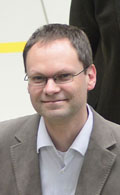 The thematic field exists ever since the Faculty of Production Engineering was founded in 1982. In the area of university teaching, the thematic field deals with basic instruction in technical thermo dynamics and offers a comprehensive spectrum of study courses in the areas of thermodynamics, heat transfer and related equipment as well as in optical measurement techniques and thermal energy technologies. The thematic field‘s research concentration lies in the characterization of complex fluids and the kinetics of phase transitions as well as in vaporizer technology and sea-water desalination. The teaching contents include classic physical-chemical methods and latest laser-optic measurement systems as well as test facilities from laboratory to pilot-plant scale and comprehensive simulation programs, which allow to explore basic as well as application-oriented lines of research.
The thematic field exists ever since the Faculty of Production Engineering was founded in 1982. In the area of university teaching, the thematic field deals with basic instruction in technical thermo dynamics and offers a comprehensive spectrum of study courses in the areas of thermodynamics, heat transfer and related equipment as well as in optical measurement techniques and thermal energy technologies. The thematic field‘s research concentration lies in the characterization of complex fluids and the kinetics of phase transitions as well as in vaporizer technology and sea-water desalination. The teaching contents include classic physical-chemical methods and latest laser-optic measurement systems as well as test facilities from laboratory to pilot-plant scale and comprehensive simulation programs, which allow to explore basic as well as application-oriented lines of research.
Prof. Dr.-Ing. Johannes Kiefer
Technische Thermodynamik
Universität Bremen
Badgasteiner Str. 1
28359 Bremen
Tel: +49 (0)421-218-64777
jkiefer@uni-bremen.de
www.thermo.uni-bremen.de/
The object of research in this thematic field is man, and man’s interaction with technical and organizational systems. The overriding objective is to achieve a holistic configuration of work processes, structures and systems by adopting an integrated view of man, engineering, and organization. The aim is the development, implementation and evaluation of practical solutions for and with organizations of different kinds in order to arrive at configurations of work that are both ethical as well as economically viable. The contents and methods of the thematic field follow those of work and systems science.
N.N.
 Center for Applied Space Technology and Microgravity (ZARM) are fluid mechanics, space technology and space sciences - i.e. a broad spectrum between basic research and technology development for space travel. An example of an interdisciplinary research area is astronautical exploration. Here, scientists investigate, among other things, what a moon and Mars habitat could look like, how life support systems should be designed, how the risk of fire on astronautical space stations can be reduced or how optimal handling of liquids, e.g. in rocket tanks, can be guaranteed. In the field of basic research, ZARM scientists use experimental, theoretical and numerical approaches, for example to check Einstein's general theory of relativity with the help of satellites. On the theoretical-numerical side, there is the development of models and parallelized high-performance codes in addition to the use of software, which makes it possible to efficiently simulate almost any flow and to precisely assess disruptive effects in the satellite orbits. In addition, researchers at ZARM develop technologies for space missions and experiments that are carried out on the International Space Station (ISS), on sounding rockets, on parabolic aircraft or in ZARM's own Fallturm Bremen and GraviTower Bremen Pro.
Center for Applied Space Technology and Microgravity (ZARM) are fluid mechanics, space technology and space sciences - i.e. a broad spectrum between basic research and technology development for space travel. An example of an interdisciplinary research area is astronautical exploration. Here, scientists investigate, among other things, what a moon and Mars habitat could look like, how life support systems should be designed, how the risk of fire on astronautical space stations can be reduced or how optimal handling of liquids, e.g. in rocket tanks, can be guaranteed. In the field of basic research, ZARM scientists use experimental, theoretical and numerical approaches, for example to check Einstein's general theory of relativity with the help of satellites. On the theoretical-numerical side, there is the development of models and parallelized high-performance codes in addition to the use of software, which makes it possible to efficiently simulate almost any flow and to precisely assess disruptive effects in the satellite orbits. In addition, researchers at ZARM develop technologies for space missions and experiments that are carried out on the International Space Station (ISS), on sounding rockets, on parabolic aircraft or in ZARM's own Fallturm Bremen and GraviTower Bremen Pro.
Prof. Dr. Marc Avila
Zentrum für angewandte Raumfahrttechnologie und Mikrogravitation
Universität Bremen
Hochschulring / Am Fallturm 2
28359 Bremen
Tel: +49 (0)421-218-57825
marc.avila@zarm.uni-bremen.de
www.zarm.uni-bremen.de/
 The research topics at the center of this thematic field encompass cutting and forming machine tools as well as their subassemblies and components, from the point of view of both construction as well as their functional interaction. A special focus is put on machines and plant used in high-performance processes where high precision and/or high productivity is called for. In this context, several research topics deal with hybrid kinematic structures, i.e. interaction between serial and parallel kinematic substructures and their control.
The research topics at the center of this thematic field encompass cutting and forming machine tools as well as their subassemblies and components, from the point of view of both construction as well as their functional interaction. A special focus is put on machines and plant used in high-performance processes where high precision and/or high productivity is called for. In this context, several research topics deal with hybrid kinematic structures, i.e. interaction between serial and parallel kinematic substructures and their control.
Prof. em. Dr.- Ing. Bernd Kuhfuß
Former head of institute/research groups
bime | Bremer Institut für Strukturmechanik und Produktionsanlagen
Universität Bremen
Badgasteiner Str. 1
28359 Bremen
Tel: +49 (0)421-218-64800
kuhfuss@bime.de
www.wzm.uni-bremen.de
www.bime.de
 The thematic field Production Processes led by Prof. Karpuschewski encompasses geometrically unspecified and unspecified cutting – from microcutting to the production of gear wheels.
In addition, the researchers in this thematic field investigate the resource-friendly and future-oriented use of cooling lubricants and materials.
The thematic field Production Processes led by Prof. Karpuschewski encompasses geometrically unspecified and unspecified cutting – from microcutting to the production of gear wheels.
In addition, the researchers in this thematic field investigate the resource-friendly and future-oriented use of cooling lubricants and materials.
Prof. Dr.-Ing. habil. Prof. h.c. Dr. h.c. B. Karpuschewski
Leibniz Institute for Materials Engineering IWT
Universität Bremen
Badgasteiner Str. 3
28359 Bremen
Tel: +49 (0)421-218-51100
karpuschewski@iwt-bremen.de
www.iwt-bremen.de/en/university-teaching/research-groups/production-processes
 Research in this thematic field centers on the development and operation of production facilities, from their fundamental mechanical design, through mechatronic components and control engineering, up to systems operation and production logistics. The group’s research concentrations – production facilities, structural mechanics, assembly systems and configuration of production – complement each other perfectly: In their interaction they enable a comprehensive overview of production facilities as well as their operation and process chains from different major viewpoints.
Research in this thematic field centers on the development and operation of production facilities, from their fundamental mechanical design, through mechatronic components and control engineering, up to systems operation and production logistics. The group’s research concentrations – production facilities, structural mechanics, assembly systems and configuration of production – complement each other perfectly: In their interaction they enable a comprehensive overview of production facilities as well as their operation and process chains from different major viewpoints.
Prof. Dr.-Ing. Kirsten Tracht
Bremer Institut für Strukturmechanik und Produktionsanlagen (BIME) Daimler-Stiftungsprofessur "Prozessgerechte Technologiegestaltung"
Universität Bremen
Badgasteiner Str. 1
28359 Bremen
Tel: +49 (0) 421-218-64841
tracht@pgt.uni-bremen.de
www.pgt.uni-bremen.de
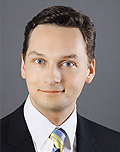 Research in the thematic field encompassed by MAQ focuses on the development of indispensible elements as well as fully integrable part solutions for optimized production processes. The major focus is on a dynamic process of production or process engineering as a holistic system. Accordant optimization in respect of economic, qualitative, ecological and ergonomic criteria calls for interdisciplinary cooperation and solutions to complex problems. Research activities in the thematic fields encompassed by MAQ are therefore not merely an end in themselves, i.e. the individual perfection of single processes, metrology methods and devices, control and feedback control systems, automation technology and quality management must always follow the concrete aim of integration in a production process.
Research in the thematic field encompassed by MAQ focuses on the development of indispensible elements as well as fully integrable part solutions for optimized production processes. The major focus is on a dynamic process of production or process engineering as a holistic system. Accordant optimization in respect of economic, qualitative, ecological and ergonomic criteria calls for interdisciplinary cooperation and solutions to complex problems. Research activities in the thematic fields encompassed by MAQ are therefore not merely an end in themselves, i.e. the individual perfection of single processes, metrology methods and devices, control and feedback control systems, automation technology and quality management must always follow the concrete aim of integration in a production process.
Prof. Dr.-Ing. habil. Andreas Fischer
BIMAQ Bremer Institut für Messtechnik, Automatisierung und Qualitätswissenschaft
(BIMAQ Bremen Institute of Metrology, Automation and Quality Science)
Universität Bremen
Linzer Straße 13
28359 Bremen
Sekretariat
Tel.: +49 (0) 421-218-646 01 und -646 02
direkt
Tel.: +49 (0) 421-218-218-646 00
leitung@bimaq.de
www.bimaq.de
 The thematic field Integrated Product Development headed by Prof. Dr.-Ing. habil. Klaus-Dieter Thoben is involved in teaching the areas of methodical and systematic product development. The field is represented in various lecture courses in the study programs Systems Engineering, Production Engineering, Management and Production Engineering. In accord with the thematic orientation, topics like technical drawing, machine parts, design technology and computer-aided engineering (CAE) are all part of the portfolio.
The thematic field Integrated Product Development headed by Prof. Dr.-Ing. habil. Klaus-Dieter Thoben is involved in teaching the areas of methodical and systematic product development. The field is represented in various lecture courses in the study programs Systems Engineering, Production Engineering, Management and Production Engineering. In accord with the thematic orientation, topics like technical drawing, machine parts, design technology and computer-aided engineering (CAE) are all part of the portfolio.
Besides cross-area aspects of product development – like for example continuous product data management or questions pertaining to how materials behave – production processes and resource input, the focus is on the product life cycle.
Research activities encompass experimental and theoretical projects with thematic foci on product development, especially in areas of automation and light-weight construction, but also the development of energy- and resource-efficient production processes.
In addition to the above, Prof. Thoben is at the head of BIBA, where he leads the area Information and Communication Technology in Production (IKAP).
Prof. Dr.-Ing. habil. Klaus-Dieter Thoben
RG 9, Integrated Product Development
Universität Bremen
Badgasteiner Straße 1
28359 Bremen
Tel: +49 (0)421-218-50005
thoben@uni-bremen.de
www.bik.uni-bremen.de/
In an ongoing appointment process, we are looking for a person in the technology assessment department whose research interests include several of the following topics:
- Socio-technical analysis and evaluation of production and energy systems
- Energy and material cycles of production and energy systems
- Sustainability in production technology
- Resilience of production and energy systems
- Multi-criteria analysis and economic evaluation of production and energy systems.
One of the main research areas is energy research, including the involvement of the âResilient Energy Systemsâ working group (see FG 30). Further information: Prof. Dr.-Ing. Johannes Kiefer (jkiefer@uni-bremen.de)
N.N.
Fachbereich 4
Universität Bremen
Badgasteiner Str. 1
28359 Bremen
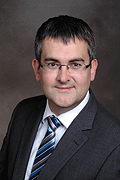 The thematic field Materials Engineering provides education in the areas of heat treatment of metals, surface technology, characterization of materials structure, mechanical materials properties and optimization of materials properties for industrial use. The area of research encompasses comprehensive experimental and theoretical work in the areas: Heat treatment of metals, surface technology, characterization of materials structure, mechanical materials properties and optimization of materials properties for industrial use.
The thematic field Materials Engineering provides education in the areas of heat treatment of metals, surface technology, characterization of materials structure, mechanical materials properties and optimization of materials properties for industrial use. The area of research encompasses comprehensive experimental and theoretical work in the areas: Heat treatment of metals, surface technology, characterization of materials structure, mechanical materials properties and optimization of materials properties for industrial use.
Prof. Dr.-Ing. habil. Rainer Fechte-Heinen
Leibniz-Institut für Werkstofforientierte Technologien - IWT
Universität Bremen
Badgasteiner Str. 3
28359 Bremen
Tel: +49 (0)421-218-51301
fechte@iwt-bremen.de
www.iwt-bremen.de/en/university-teaching/research-groups/materials-engineering/metals
 The thematic field 12 led by Prof. Dr.-Ing. Axel S. Herrmann is closely connected with Faserinstitut Bremen e.V. (www.faserinstitut.de).
The thematic field 12 led by Prof. Dr.-Ing. Axel S. Herrmann is closely connected with Faserinstitut Bremen e.V. (www.faserinstitut.de).
Teaching activities revolve around the fiber and fiber composite class of materials with their individual properties and production technologies.
In the area of research the focus is on the production of innovative functional fibers for technical applications as well as on the development of light-weight products made of fiber composites and new more economically efficient production processes.
Prof. Dr.-Ing. Axel S. Herrmann
Faserinstitut Bremen e.V.
Universität Bremen
Am Biologischen Garten 2
28359 Bremen
Tel: +49 (0)421-218-58701
herrmann@faserinstitut.de
www.faserinstitut.de/
 Teaching activities in the thematic field of welding technology and related processes deal with thematic areas surrounding welding technology and forming technology. Points of emphasis within these thematic areas are: Thermal joining, especially welding with conventional processes and laser beams; laser material processing; high-performance laser and forming machines; micro forming technology.
Teaching activities in the thematic field of welding technology and related processes deal with thematic areas surrounding welding technology and forming technology. Points of emphasis within these thematic areas are: Thermal joining, especially welding with conventional processes and laser beams; laser material processing; high-performance laser and forming machines; micro forming technology.
Research concentrations lie in the area of production processes (joining, cutting, coating, forming and properties manipulation, especially by means of laser and plasma beams). Activities in basic- as well as application oriented projects are concerned with the development and qualification of hybrid, mixed-compound and coating processes as well as promoting an enhanced understanding of processes, e.g. in the case of photon-based chemical processes, improvement of the properties or production of innovative modified materials, and for the systems engineering needed to implement processes. The research activities encompass both basic investigations in the context of DFG projects as well as transfer-oriented projects undertaken in cooperation with industrial partners in various European countries in the frame of research programs funded by the Federal German government (especially BMBF - the Federal Ministry for Education and Research, as well as AiF - the German Federation of Industrial Research Associations and the European Union) and the federal state of Bremen. Research concentrates on the areas of joining, surface engineering, and micro production.
Prof. Dr.-Ing. Frank Vollertsen (retired)
Bremer Institut für angewandte Strahltechnik
Universität Bremen
Klagenfurter Str. 2
28359 Bremen
www.bias.de
 The Department of Environmental Process Engineering (headed by Prof. Dr.-Ing. habil. Sven Kerzenmacher) performs interdisciplinary research on fundamentals, material, and processes for environmental engineering and sustainable biotechnology.
The Department of Environmental Process Engineering (headed by Prof. Dr.-Ing. habil. Sven Kerzenmacher) performs interdisciplinary research on fundamentals, material, and processes for environmental engineering and sustainable biotechnology.
Its research is centered on new processes for energy-efficient wastewater treatment, bio-production, and resource recovery. This includes the use of biocatalysts such as enzymes or microorganisms for production and remediation processes, for instance the electrochemical hydrogen generation or the removal of anthropogenic micro-pollutants from wastewaters.
The realization of new processes often requires tailor-made functional materials. In this context, the department’s material science activities are focused on the research and development of hierarchically organized nanofibers, fabricated using the electro-spinning method. These materials serve as (bio-) electrochemical electrodes, as support material for biofilm or enzymatic and abiotic catalysts. Furthermore, electrically conductive filtration membranes are being developed for the integration of electrochemical processes into membrane bioreactors.
With respect to fundamentals, the department’s research includes methods of applied (bio-) electrochemistry and the multi-scale investigation of mass transfer processes. The later primarily comprises experimental analysis and modelling of local effects in multi-phase flows with and without biological or chemical reactions.
Prof. Dr.-Ing. habil. Sven Kerzenmacher
Department of Environmental Process Engineering
University of Bremen
Leobener Str. 6
28359 Bremen/Germany
Tel: +49 (0)421-218-63331
kerzenmacher@uni-bremen.de
www.uvt.uni-bremen.de
 Research Group 15 represents technical mechanics and structural mechanics, which are basic disciplines in production engineering. We give the students the necessary knowledge in statics, elastostatics, dynamics, higher strength theory and structural mechanics, which are required for the design of components, machines and structures.
Research Group 15 represents technical mechanics and structural mechanics, which are basic disciplines in production engineering. We give the students the necessary knowledge in statics, elastostatics, dynamics, higher strength theory and structural mechanics, which are required for the design of components, machines and structures.
The research areas of the department include large parts of modern solid mechanics. Current research work covers both the subject area of structural mechanics and that of material mechanics, whereby modern analytical and numerical methods are used in the model development, formulation and simulation.
Newer material and composite developments for lightweight construction and for functionalized materials require the further and new development of methods and material models, such as homogenization methods for materials with a microstructure and the development of plate theories for multilayer laminates. In the area of structural mechanics, there is a focus on the development of consistent higher-order plate theories while avoiding the a priori assumptions that are usually necessary.
Research Group 15 is part of the Bremen Institute for Mechanical Engineering (bime), which combines the departments of manufacturing equipment, technical mechanics / structural mechanics and process-oriented technology design. The bime deals with the development and operation of production plants - from the basic mechanical design to the mechatronic components and control technology to plant operation and production logistics. The recipe for success of the bime lies in the combination of these priorities and the combination of basic research, application-oriented science and economic cooperation.
N.N.
Fachbereich 04
Produktionstechnik - Maschinenbau und Verfahrenstechnik
Universität Bremen
IW3 1200, Am Biologischen Garten 2
28359 Bremen
Tel.: +49 (0)421-218-64690
www.uni-bremen.de/mechanik/
 The thematic field Ceramic Materials and Components is headed by Prof. Dr. Ing. Kurosch Rezwan. Research topics in the thematic field deal with the synthesis, production and forming of high-performance ceramic materials. The four research concentrations comprise: Innovative Production and Forming Processes, Bioceramics, High-temperature Composites, and Hybrid Ceramics.
The thematic field Ceramic Materials and Components is headed by Prof. Dr. Ing. Kurosch Rezwan. Research topics in the thematic field deal with the synthesis, production and forming of high-performance ceramic materials. The four research concentrations comprise: Innovative Production and Forming Processes, Bioceramics, High-temperature Composites, and Hybrid Ceramics.
Study courses in the thematic field deal with theoretical and practical knowledge of the properties of high-performance ceramics, their fabrication, and their areas of application. The lecture “Materials Engineering Ceramics�? for students who have completed their basic studies lays the cornerstone for subsequent advanced courses. Students acquire broad-based specialist knowledge the lectures “Bioceramics�? and “Modification and Characterization of Biomaterial Surfaces�? that build bridges i.a. to biology and medicine. Further complementary studies reflect the research activities in the thematic field. Theoretical contents combined with laboratory work provide a sound basis for accessing practical knowledge.
Prof. Dr.- Ing. Kurosch Rezwan
Keramische Werkstoffe und Bauteile
Universität Bremen
Am Biologischen Garten 2
28359 Bremen
Tel: +49 (0) 421-218-64930
krezwan@uni-bremen.de
www.ceramics.uni-bremen.de
 The Fraunhofer IFAM is a research institute in the field of materials sciences with thematic foci in the areas of metallic and polymer materials. The institute’s research on forming and functional materials takes place in Bremen, Dresden and Oldenburg; and research on customized materials solutions with optimized production processes and methods in the Fraunhofer project center in Wolfsburg.
The Fraunhofer IFAM is a research institute in the field of materials sciences with thematic foci in the areas of metallic and polymer materials. The institute’s research on forming and functional materials takes place in Bremen, Dresden and Oldenburg; and research on customized materials solutions with optimized production processes and methods in the Fraunhofer project center in Wolfsburg.
The spectrum of research and development activities ranges from materials, through forming processes, up to the functionalizing of components and systems. These activities result in customized solutions which are especially in demand in the automobile industry, medical technology, aviation and aerospace, environmental and energy technology, mechanical and plant engineering, and the electronics industry.
Forming
In the area of forming, the main focus is on developments leading to the economical and resource-saving production of ever more complex precision components. Efforts based in particular on core competences in the area of powder and foundry technologies aim at increasing the function density in components.
Functional materials
Research in the area concerned with functional materials centers on developments aimed at improving and expanding on the properties of materials and their production. Functional materials can be integrated directly in components or applied to their surfaces. They lend components additional or even completely new characteristics, like in the case of electrical or sensory functions, for instance.
The institute’s complete technological and scientific know-how is bundled in core competences capable of dealing with complex topics like rare earth, solid-state batteries, electric motor systems, components for new automobile concepts, light-weight construction, home energy systems, but also current issues surrounding a sustainable, affordable and secure energy supply.
Prof. Dr.-Ing. habil. Matthias Busse
Fraunhofer-Institut für Fertigungstechnik und angewandte Materialforschung IFAM
Universität Bremen
Wiener Str. 12
28359 Bremen
Tel: +49 (0)421-2246-100
matthias.busse@ifam.fraunhofer.de
www.ifam.fraunhofer.de
 With around 350 coworkers, the Fraunhofer Institute for Manufacturing Technology and Advanced Materials (IFAM) is by far Europe’s largest independent research institution in the area of industrial adhesive technology and surfaces at in Europe. Research centers on the research and development of adhesive technology as well as plasma and lacquer technology with the aim to provide industry with application-oriented system solutions.
With around 350 coworkers, the Fraunhofer Institute for Manufacturing Technology and Advanced Materials (IFAM) is by far Europe’s largest independent research institution in the area of industrial adhesive technology and surfaces at in Europe. Research centers on the research and development of adhesive technology as well as plasma and lacquer technology with the aim to provide industry with application-oriented system solutions.
Multifunctional products, lightweight construction and miniaturization – achieved through the intelligent combination of materials and joining processes – open up new possibilities in the area of adhesive technology and surfaces. Activities range from basic research, through production, up to the commercial launch of new products. Industrial fields of application are found above all in the construction of means of transport, mechanical engineering and plant construction, die energy technology, the construction branch, the packaging, textile and electronics industry as well as microsystems technology and medical technology.
Activities in the field of adhesive technology encompass the development and characterization of adhesives, fit-for-purpose design and simulation of adhesive, rivet and hybrid fastening as well as their characterization, testing, and qualification – all of which are complemented by the planning and automation of bonding processes in industrial application. The research profile is rounded off by process reviews as well as certified continuing education programs in the context of adhesive technology and fiber-reinforced composites.
Activities in the field of surfaces are divided into the areas of plasma technology and lacquer technology. Customized surface modifications – such as surface pretreatment and functional coatings – expand the spectrum of industrial applications for many materials or even make their technical application possible in the first place. The area of adhesion and interface research investigates i.a. the early recognition of degradation problems, validation of ageing tests, and process-integrated surface inspection.
The institute’s division for automation and production engineering in Stade is expanding activities in the area of carbon-fiber reinforced plastics (CRP) for large structures – joining, installation, processing, repair and non-destructive testing on a one-to-one scale, thus closing the gap between lab-scale or technical pilot-scale testing and industrial application in the field of CRP technology.
The institute’s whole area of adhesive technology and surfaces is certified in accordance with DIN EN ISO 9001. The laboratories for materials, corrosion and lacquer technology are additionally certified in accordance with DIN EN ISO/IEC 17025 The technical adhesives center is DIN EN ISO/IEC 17024 certified via DVS-PersZert® and internationally recognized as an accredited training body for further education in the field of adhesive technology. The plastics competence center is likewise AZAV certified and fulfills the quality requirements of DIN EN ISO/IEC 17024. The “recognized body�? for adhesive technology in the area of rail cars and their components in accordance with DIN 6701-2 was recognized by the Eisenbahn-Bundesamt (EBA)[Federal railway authority] in 2006
Prof. Dr. rer. nat. Bernd Mayer
Fraunhofer-Institut für Fertigungstechnik und Angewandte Materialforschung IFAM
- Klebtechnik und Oberflächen -
Universität Bremen
Wiener Str. 12
28359 Bremen
Tel: +49 421 2246-419
bernd.mayer@ifam.fraunhofer.de
www.ifam.fraunhofer.de
 The research group Planning and Control of Production and Logistics Systems (PSPS) deals with the holistic optimization of production systems and logistic networks. Based on interdisciplinary approaches, the group develops new concept and methods for planning and control of production and logistic processes. Topics of consideration include aspects of physical material flow, information and communication technology, and the social-technical system as well. They can pertain to single enterprises along the value chain, but also to entire production networks. Results from the research are applied to industrial projects and are integrated into the teaching material as well. The department works in close cooperation with Bremer Institut für Produktion und Logistik GmbH.
The research group Planning and Control of Production and Logistics Systems (PSPS) deals with the holistic optimization of production systems and logistic networks. Based on interdisciplinary approaches, the group develops new concept and methods for planning and control of production and logistic processes. Topics of consideration include aspects of physical material flow, information and communication technology, and the social-technical system as well. They can pertain to single enterprises along the value chain, but also to entire production networks. Results from the research are applied to industrial projects and are integrated into the teaching material as well. The department works in close cooperation with Bremer Institut für Produktion und Logistik GmbH.
The group was set up in 2000 by Prof. Dr.-Ing. Bernd Scholz-Reiter, who was elected Rector of the University of Bremen in 2012. Since 2014, Prof. Dr.-Ing. Michael Freitag is head of the group. Prof. Freitag is also director of BIBA - Bremer Institut für Produktion und Logistik GmbH and heads BIBA’s research division Intelligent Production and Logistics Systems (IPS).
Prof. Dr.-Ing. Michael Freitag
Planung und Steuerung produktionstechnischer und logistischer Systeme
c/o BIBA, Universität Bremen
Hochschulring 20
28359 Bremen
Tel: +49 (0)421-218-50001
fre@biba.uni-bremen.de
www.psps.uni-bremen.de
 The Department of Chemical Process Engineering (CVT) in the faculty of production technology is dedicated to processes of separation technology, reaction engineering and electrochemistry and investigates heat and mass transfer phenomena and structure-activity relationships with the aim of recycling and energy saving. In doing so, we are as interested in gaining basic insights as in developing sustainable technologies in collaboration with industrial users. The results from both areas are incorporated into the teaching of the CVT. The department is headed by Prof. Dr.-Ing. J. Thöming, also Managing Director of the Center for Environmental Research and Sustainable Technologies (UFT).
The Department of Chemical Process Engineering (CVT) in the faculty of production technology is dedicated to processes of separation technology, reaction engineering and electrochemistry and investigates heat and mass transfer phenomena and structure-activity relationships with the aim of recycling and energy saving. In doing so, we are as interested in gaining basic insights as in developing sustainable technologies in collaboration with industrial users. The results from both areas are incorporated into the teaching of the CVT. The department is headed by Prof. Dr.-Ing. J. Thöming, also Managing Director of the Center for Environmental Research and Sustainable Technologies (UFT).
Current research questions of the department deal with:
Reaction Engineering - here the emphasis is on the development of novel processes for chemical energy conversion and storage;
Methods of electrochemistry, which we use to analyze the corrosion of micro- and nanoparticles and to assess the environmental friendliness of nanomaterials;
Separation technology - we develop new methods for gas separation and electrokinetic fractionation of micro- and nanoparticles from colloidal solutions as well as for material recovery;
Upcycling - how effectively can residual materials be used to produce high-quality products? For example, we develop insulating materials based on slag and paper dust.
Prof. Dr. – Ing. Jorg Thöming
Fachbereich 4
Universität Bremen
Leobener Str.
28359 Bremen
Tel: +49 (0)421-218-63300
thoeming@uni-bremen.de
www.uni-bremen.de/cvt/
 Research activities in the thematic field “Interfaces in Bio-Nanomaterials Engineering – Hybrid Materials Interfaces�? encompasses the interfaces between materials science, physical chemistry, biochemistry and biophysics, with a strong focus on investigation of biohybrid interfaces on an atomistic scale. The thematic field is closely intertwined with the activities of various other university and non-university institutes. It is divided into two areas. In the theoretical area of the thematic field, which is affiliated with the Bremen Center for Computational Materials Science (BCCMS), atomistic simulation technologies are applied and developed primarily to investigate heterogeneous interfaces. In the experimental area, which is integrated in the Center for Environmental Research and Sustainable Technologies (UFT), research investigates the interrelations between biological macro molecules and solid state surfaces by means of atomic force microscopy, force microscopy and circular dichroism spectroscopy. A very close link between theory and experiment characterizes research in the thematic field, which is conducted in cooperation with a large number of partners drawn from academia and industry in Bremen, other parts of Germany as well as abroad.
Research activities in the thematic field “Interfaces in Bio-Nanomaterials Engineering – Hybrid Materials Interfaces�? encompasses the interfaces between materials science, physical chemistry, biochemistry and biophysics, with a strong focus on investigation of biohybrid interfaces on an atomistic scale. The thematic field is closely intertwined with the activities of various other university and non-university institutes. It is divided into two areas. In the theoretical area of the thematic field, which is affiliated with the Bremen Center for Computational Materials Science (BCCMS), atomistic simulation technologies are applied and developed primarily to investigate heterogeneous interfaces. In the experimental area, which is integrated in the Center for Environmental Research and Sustainable Technologies (UFT), research investigates the interrelations between biological macro molecules and solid state surfaces by means of atomic force microscopy, force microscopy and circular dichroism spectroscopy. A very close link between theory and experiment characterizes research in the thematic field, which is conducted in cooperation with a large number of partners drawn from academia and industry in Bremen, other parts of Germany as well as abroad.
Prof. Dr. – Ing. Lucio Colombi Ciacchi
TAB-Gebäude, 3. OG, Raum 3.30
Universität Bremen
Am Fallturm 1
28359 Bremen
Tel: +49 (0)421- 218 64570
colombi@hmi.uni-bremen.de
www.hmi.uni-bremen.de
BCCMS: www.bccms.uni-bremen.de
UFT: www.uft.uni-bremen.de/uft/
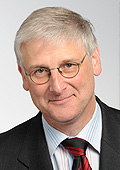 The German Aerospace Center (DLR) is the Federal Republic’s national research center for aviation and aerospace. Its comprehensive research and development activities in the areas of aviation, aerospace, transport and energy are closely involved with cooperation partners in other parts of Germany and abroad.
The German Aerospace Center (DLR) is the Federal Republic’s national research center for aviation and aerospace. Its comprehensive research and development activities in the areas of aviation, aerospace, transport and energy are closely involved with cooperation partners in other parts of Germany and abroad.
Independent basic research in the area of aerospace encompasses systems engineering and analysis, which will in future represent an important milestone in the national as well as international high-technology sector. An important task lies in the development of concepts for innovative aerospace missions as well as aerospace-aided applications for scientific, commercial and security-related use as guides for policy makers.
For example, the institute’s researchers work on the technologies and concepts connected with planetary landing missions. They develop conceptions, models and verifications of the suitability of hardware for the conditions expected to be met and research technologies for transport and propulsion systems. The conception and analysis of support systems as well as the development of orbital and safety systems falls just as much within their brief as work on technologies for orbit and position control. The institute also develops highly reliable data management systems for space vehicles.
The targeted use of synergies contributes towards creation of a platform for future-oriented aerospace research with a concentration on “aerospace systems�?.
Prof. Dr. rer. nat. Hansjörg Dittus
DLR Institut für Raumfahrtsysteme
Universität Bremen
Robert-Hooke-Str.7
28359 Bremen
The main focus in the thematic field “Materials Mechanics�? is on the microstructure-based modeling of the mechanical behavior of materials. The current state of internal variables always has a clear microstructure background. This is of particular significance for small-scale modeling, where the discrete nature of the microstructure calls for an unconventional extension of continuum mechanics. For example, in the case of the plastic deformation of very small samples (dimensions in the micro and sub-micrometer range), some plastic properties are dependent on the absolute dimensions of the sample. These so-called mechanical size-effects cannot be described by means of classic continuum mechanics as these know no internal lengths. The thematic field therefore carries out basic research in the area of dislocation density modeling. However, the microstructure also has an effect on the macroscopic behavior of materials. Hence, the grain orientation, the so-called texture, has a significant effect on the deformation of strongly rolled steel sheet. The thematic field has developed texture models to predict the mechanical characteristics and texture development of plastic deformation. On the basis of classic plasticity laws, this simulates the forming processes involved. An additional research concentration is the modeling of porous ceramics to reveal the stochastic characteristics of the microstructure which so significantly influences mechanical behavior.
N.N.
Bremer Institut für Strukturmechanik und Produktionsanlagen
Universität Bremen
Am Biologischen Garten 2
28359 Bremen
The thematic field covered by the Christa and Manfred Fuchs Endowed Chair for aerospace technology is a cooperation with the DLR Institute for Aerospace Systems. Activities in the thematic field of aerospace technology are concerned with space missions on satellites or suborbital rockets. Research in the early stages of such missions concentrates on aspects surrounding the technological, programmatic and scientific conception as well as development of the requisite technology. Later stages involve the production, integration and verification of the scientific payload as well as scientific evaluation. Another focus of space missions occupying the thematic field “Aerospace Technology�? is on testing basics of physics, in particular special and general relativity theory as well as quantum mechanics.
Together with the area of “Fluid Mechanics�? and the research concentration “Aerospace Sciences�?, the thematic field of aerospace technology constitutes the Center for Applied Aerospace Technology and Microgravitation (ZARM). ZARM has built an excellent worldwide reputation for competence in the area of space research and is a renowned educator of highly qualified young researchers.
Embedded in the University of Bremen’s Faculty of Production Engineering, activities at ZARM concentrate on space research and experiments under simulated space conditions. In concrete terms, this means we develop technologies for use in rockets and satellites and carry out experiments under conditions of weightlessness. This is done in the ZARM drop tower, Europe’s only Earth-bound research laboratory for microgravitation, as well as on suborbital rockets, satellites, or on the international Space Station, ISS.
N.N.
Zentrum für angewandte Raumfahrttechnologie und Mikrogravitation
Universität Bremen
Hochschulring / Am Fallturm
28359 Bremen
 Founded in 1966, the Institute of Engineering and Education (ITB) is a central research unit at the University of Bremen with around 65 members of staff. The research focus at ITB is on the area of vocational education under the headings: configuration of work, engineering, and education. The configuration aspect also encompasses sustainability concepts. ITB research is characterized by close relation to reforms and developments in vocational education. This overall context provides the backdrop for the interdisciplinary, participative and international research and evaluation approaches realized by ITB in cooperation i.a. with its university, institutional and industrial partners for institutions concerned with the configuration of work, engineering, and education. Thematic foci include: The configuration of work and engineering, work and qualification, teaching and learning in the field of vocational education, school development and teaching quality, work and engineering as topics of pre-vocational education, learned (via apprenticeship) occupations and systems of vocational training, as well as innovation and industrial culture.
Founded in 1966, the Institute of Engineering and Education (ITB) is a central research unit at the University of Bremen with around 65 members of staff. The research focus at ITB is on the area of vocational education under the headings: configuration of work, engineering, and education. The configuration aspect also encompasses sustainability concepts. ITB research is characterized by close relation to reforms and developments in vocational education. This overall context provides the backdrop for the interdisciplinary, participative and international research and evaluation approaches realized by ITB in cooperation i.a. with its university, institutional and industrial partners for institutions concerned with the configuration of work, engineering, and education. Thematic foci include: The configuration of work and engineering, work and qualification, teaching and learning in the field of vocational education, school development and teaching quality, work and engineering as topics of pre-vocational education, learned (via apprenticeship) occupations and systems of vocational training, as well as innovation and industrial culture.
ITB research projects receive funding from federal ministries, European programs, international partner institutions (among others in China, Malaysia, Oman, and European organizations), enterprises and foundations. The study programs offered by ITB have as their objective teacher training for vocational schools. The degree courses “Bachelor of Science�? and “Master of Education�? in the subject fields of metal engineering, automotive engineering, electrical engineering and information technology prepare students for teaching careers in vocational schools.
Prof. Dr.-Ing. Maren Petersen
RG 27, Vocational Discipline Metal Engineering and Related Didactics
Institut Technik und Bildung
Universität Bremen
Am Fallturm 1
28359 Bremen
Tel: +49 (0) 421 218-66270
maren.petersen@uni-bremen.de
www.itb.uni-bremen.de/
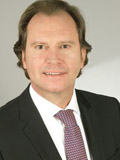
Prof. Dr. Andreas Rittweger
DLR Institut für Raumfahrtsysteme
Universität Bremen
Robert-Hooke-Str.7
28359 Bremen

Prof. Dr.-Ing. Johannes Kiefer (Kommissarische Leitung)
The integration of ever-increasing amounts of renewable energy into the electricity, heat and transport sectors can only be achieved if the energy supply is fundamentally redesigned, while ensuring security of supply, economic efficiency, environmental sustainability and social acceptance. To find ways to achieve these goals and to keep the energy system stable even under uncertainty, high volatility and under the influence of new dangers such as extreme weather and hacker attacks is the core issue of the resilient energy system area. We analyze existing energy systems and develop novel design approaches for the supply of electricity, heat and fuels at very high levels of renewable energies. In the model, in the laboratory and in real systems at the urban, regional and national level, we are working with research partners and practitioners to implement the idea of resilient energy systems. A holistic approach means consideration of technical, social, ecological and economic aspects.
The concept of resilience to the design and development of technologies is understood as a bionic approach in the sense of a 'learning from nature'. In teaching, methods and concepts for resiliency systems are taught in the context of deepening direction energy systems. Students are introduced by our team in analysis and design approaches and acquire problem solving competence for highly complex socio-technical systems.
Universität Bremen
Forschungszentrum Nachhaltigkeit
Seminar- und Forschungsverfügungsgebäude(SFG)
Enrique-Schmidt-Straße 7
28359 Bremen
Tel: +49 (0) 421 218-64884
sgr@uni-bremen.de
www.uni-bremen.de/res/
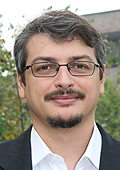
The main thrust in this thematic field is the development, analysis and modeling of electrochemical systems for the storage and conversion of energy like batteries, super condensers and electrolyzers, for example. Current research activities revolve around the development of new, aqueous zinc-ion batteries, compiling mechanical studies of metal-ion intercalation in solid state structures, modeling of electron and ion transfer reactions, as well as the thermodynamic and kinetic characterization of the intercalation of multi-cations.
Prof. Fabio La Mantia
Fachgebiet Energiespeicher- und Energiewandlersysteme
Fachbereich Produktionstechnik (FB 4)
Universität Bremen
Wiener Str. 12, Zimmer 1.5.13
28359 Bremen
Tel.: +49 (0)421-2246-7331
lamantia@uni-bremen.de
www.esecs.uni-bremen.de
Other professorships

Prof. Dr.-Ing. habil. Dr.-Ing. E. h. Ekkard Brinksmeier
Leibniz Institute for Materials Engineering IWT
Universität Bremen
Badgasteiner Str. 3
28359 Bremen
brinksmeier@iwt-bremen.de
www.iwt-bremen.de/de/uni-lehre/fachgebiete
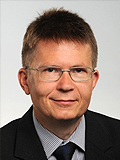
Prof. Dr.-Ing. Richard Degenhardt
Deutsches Zentrum für Luft- und Raumfahrt (DLR)
Institut für Faserverbundleichtbau und Adaptronik
Strukturmechanik
Lilienthalplatz 7
38108 Braunschweig
Tel: +49 (0)531 295-3059
richard.degenhardt@dlr.de
www.dlr.de/fa/desktopdefault.aspx/tabid-10590/1807_read-14720/sortby-lastname/
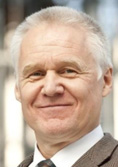
Prof. Dr.-Ing. habil. Michael Dreyer
Fachgebiet Stroemungsmechanik
ZARM, Universität Bremen
Am Fallturm
28359 Bremen
Tel: +49 (0)421-218-57866
michael.dreyer@zarm.uni-bremen.de
www.zarm.uni-bremen.de/2forschung/grenzph/gfp_h_en.htm
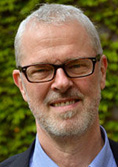
Prof. Dr.-Ing. habil. Udo Fritsching
Leibniz Institute for Materials Engineering IWT
Badgasteiner Str. 3
28359 Bremen
Tel: +49 (0)421-218-51230
ufri@iwt-bremen.de
www.iwt-bremen.de
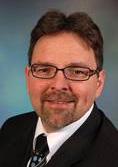
Prof. Dr.-Ing. habil. Carsten Heinzel
Leibniz Institute for Materials Engineering IWT
Badgasteiner Str. 3
28359 Bremen
Universität Bremen
Fachbereich Produktionstechnik
Fachgebiet Fertigungsverfahren und Labor für Mikrozerspanung
Badgasteiner Str. 1
28359 Bremen
Tel: +49 (0)421-218-51110
heinzel@iwt.uni-bremen.de
http://www.iwt-bremen.de
 Prof. Dr. rer. nat. Claus Lämmerzahl
Prof. Dr. rer. nat. Claus Lämmerzahl
ZARM - Zentrum für Angewandte Raumfahrttechnologie und Mikrogravitation
Universität Bremen
Am Fallturm
28359 Bremen
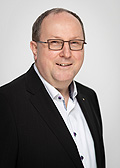
Prof. Dr.-Ing. Thomas Wimmer
BIBA, Universität Bremen
Hochschulring 20
28359 Bremen
Tel: +49 (0)421-17384-16
wmm@biba.uni-bremen.de
www.ips.biba.uni-bremen.de
 Text folgt
Text folgt
